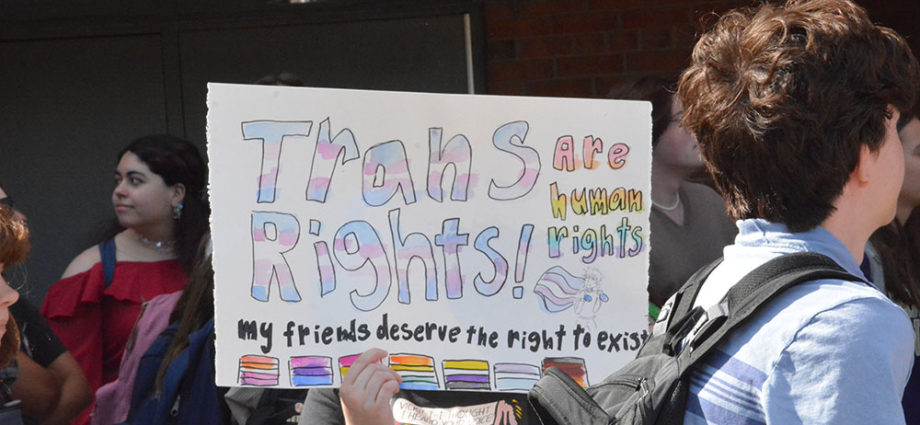On Sept. 16, Governor Glenn Youngkin’s administration released a set of model policies impacting the treatment of transgender students in schools. The change was met with mixed feedback.
The “2022 Model Policies on the Privacy, Dignity, and Respect for all Students and Parents in Virginia’s Public Schools” include requiring parental consent in order for a transgender student under 18 to use a different name or set of pronouns.
Sophomore Chloe Hena said school is sometimes the only place transgender people can safely be themselves.
“And then if that’s not a safe place, it’s just going to be like those people aren’t living properly,” Hena said.
Although worried about the implication of the policies, Hena said Marshall is a better school community to be in than other schools around the state.
“I honestly think that I’m lucky to be in this kind of environment,” Hena said. “The fact that we even have this [LGBTQ+ Perspectives in Literature] class just goes to show that there’s a little bit more compassion than there would be in other places.”
A junior, who requested to remain anonymous to protect the student’s privacy, expressed a lack of confidence about Marshall’s potential reaction because for staff, following the rules is not a choice.
“These are people’s jobs, and this is how a lot of them are making their money,” the junior said. “If it has to be this way a lot of them have no other option. It’s job over morals, and if it’s all of Virginia, they’d have to move or be in private school.”
The junior said the policy represents a larger change in the world.
“It’s a humanity thing,” the junior said. “It started off this year with Roe v. Wade, and slowly everyone’s rights are getting taken away. I think this isn’t just queer versus government—I think this needs to be a human to government thing.”
Senior Oliver Bednarski said he believes the intent of the policies is largely misunderstood.
“I don’t think the policy necessarily intends for the allowing of maliciousness—I don’t think lawmakers are just going to allow bullying straight out,” Bednarski said. “It sounds like there could be an unintended consequence, or just the way the law’s written, like the wording, is just confusing for some people.”
However, Bednarski said he thinks preventing students from expressing their gender identity could be problematic.
“It’s just plain illegal,” Bednarski said. “It’s under the First Amendment; we have the freedom of expression, freedom of speech and all that other jazz.”
The junior said the policies will have a personal effect.
“You don’t know what it’s like to wake up and not feel good in your own body and to come to school and be put in a place where people knowingly don’t use your correct pronouns,” the junior said. “You’re getting pushed back into that closet that you tried so hard to get out of.”
A 30-day comment period for the policies begins on Sept. 26, and afterwards the policies will be official.


